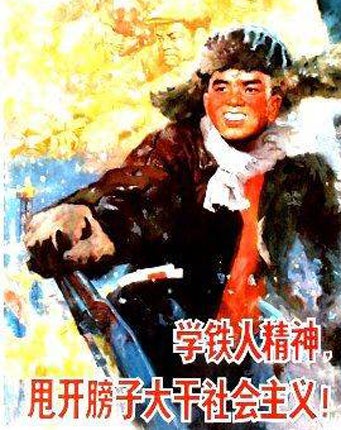China mourns worker's heroic death in lavatory

Your support helps us to tell the story
From reproductive rights to climate change to Big Tech, The Independent is on the ground when the story is developing. Whether it's investigating the financials of Elon Musk's pro-Trump PAC or producing our latest documentary, 'The A Word', which shines a light on the American women fighting for reproductive rights, we know how important it is to parse out the facts from the messaging.
At such a critical moment in US history, we need reporters on the ground. Your donation allows us to keep sending journalists to speak to both sides of the story.
The Independent is trusted by Americans across the entire political spectrum. And unlike many other quality news outlets, we choose not to lock Americans out of our reporting and analysis with paywalls. We believe quality journalism should be available to everyone, paid for by those who can afford it.
Your support makes all the difference.China has produced all kinds of heroes in the six decades since the revolution. But it is hard to believe that many among their number died in the toilet.
The latest addition to the ranks of the country's feted élite is one Zhu Jihong, a 29-year-old government employee who was taking a break from his work on a development project in Sichuan province when he fell and met with a sad demise.
Now the authorities have bestowed a rare honour on him – and sparked controversy over what, exactly, makes for a valiant death. Because Mr Zhu was working overtime, at the weekend, when he suffered the fatal accident, and because of his impeccable work record, the local government has honoured him for "dying a hero's death while carrying out his duties". He was also hailed as a "model party member".
But, if the government has made up its mind, many observers are sceptical. "No offence to the hapless Zhu, but the fact remains that the use of 'die a hero's death' is a blatant misnomer," wrote the Shanghai Daily newspaper.
"After all, compared with people who lose their lives trying to save others or safeguard public assets from being plundered, Zhu's death doesn't carry the same cachet... Tragic as the death was, it is mind-boggling that a fall in a toilet should lead to the glorification of someone who clearly died of a cause other than work," said the paper.
Many Chinese web users have taken a similar view. One joked that it was hard to associate the performance of one's patriotic duty with relieving oneself. Others have complained that the award is going to people who may not deserve the title. It was not always thus. Most of Mr Zhu's predecessors come with a more obviously laudable life story.
"Iron Man Wang" was China's first model worker and a great revolutionary propaganda hero, famous for digging for oil with his bare hands. The revolutionary hero Lei Fang was a soldier who died in 1962 when he was run over by a lorry while trying to help a comrade.
The circumstances surrounding Mr Zhu's death were a little different. He suffered head injuries after he fell in the cubicle on Saturday, 24 July, while texting his girlfriend, by some reports, and apparently suffering from exhaustion. He died of his wounds two days later.
But, despite that sharp contrast, Mr Zhu's employers have argued that his public service made his death as noble as his life. "Mr Zhu deserves the honours," the local propaganda unit said. "He volunteered to work on weekends for a raft of urgent public projects. His collapse was a result of extreme fatigue caused by overwork."
Giving public servants "hero" status is a cornerstone of China's state system, a way of ensuring that soldiers or police officers who die in the line of duty are honoured, and that their families receive an adequate pension.
The Communist Party designation of "model worker", traditionally confined to loyal bus conductors and coal miners, has in recent years been broadened to include entrepreneurs and sports stars – Yao Ming, the multimillionaire basketball star for the Houston Rockets, has been named a model worker.
But the principle of sacrifice and heroism remains mostly intact. Other heroes include Shi Chuanxiang, who spent 40 years unflinchingly shovelling night soil, or human manure, from Beijing public toilets.
Join our commenting forum
Join thought-provoking conversations, follow other Independent readers and see their replies
Comments